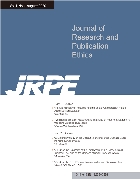- 권한신청
- E-ISSN2733-7146
- KCI Candidate
Exploring the Concept of University Research Ethics Education and the Direction of Curriculum Development
Abstract
Purpose: Research ethics has social implications beyond the issues of personal morality and research integrity. In recent years, research ethics has become a more controversial topic in society. In this study, the concept of the university research ethics curriculum is defined, the current status of the research ethics curriculum is analyzed, and the direction of the university research ethics curriculum development direction is discussed. Research design, data and methodology: The concept of university research ethics education and the current status of research ethics education were examined, and the development direction of the university research ethics curriculum was explored based on the framework <the educational goals - curriculum design and operation method - curriculum operation support system>. Results: field education to secure university research ethics is still insufficient. In other words, only 12 universities for undergraduate programs and 37 universities for graduate programs included research ethics in their regular curriculum. Conclusions: The occurrence of research misconduct is mainly caused by not recognizing the error or not taking it seriously. In particular, university research misconduct results from a lack of understanding of research ethics, poor research education, a performance-oriented academic climate, and the absence of an institutional system for establishing research ethics.
- keywords
- Research Ethics, University Research Ethics Education, Curriculum Development Direction, Research Integrity
- 다운로드 수
- 조회수
- 0KCI 피인용수
- 0WOS 피인용수














